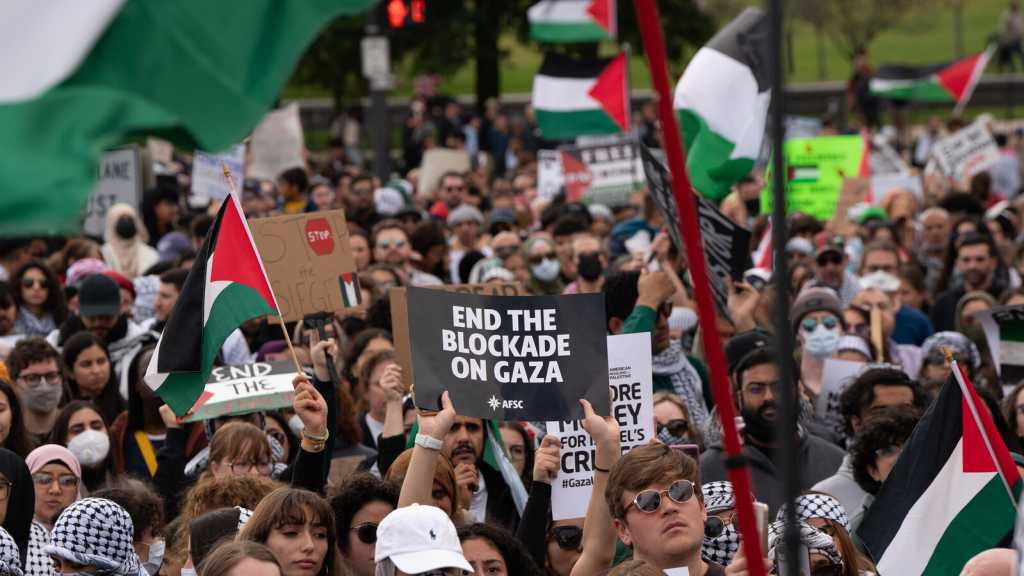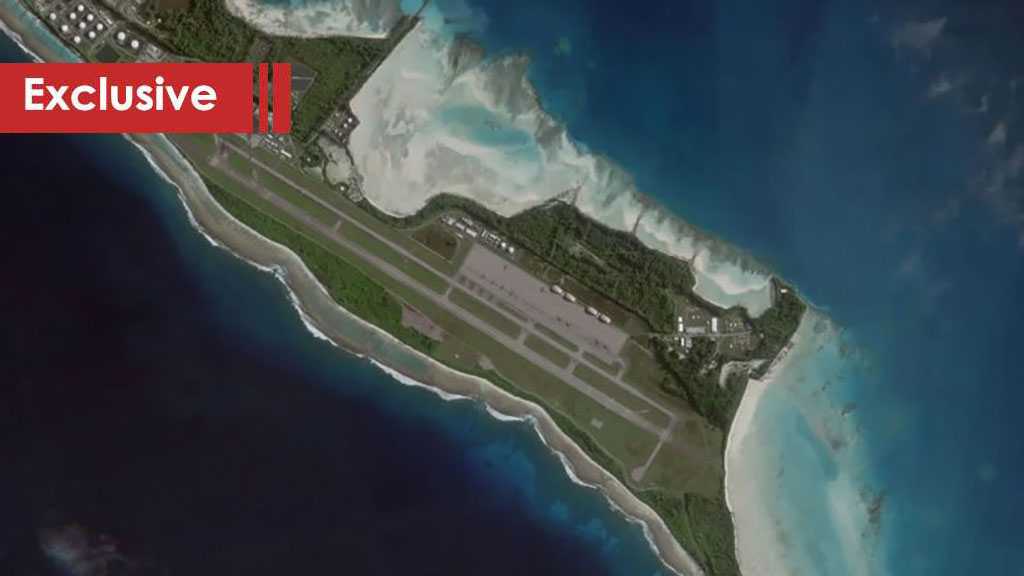
Five Years on and War Memories Still Remain

By: JB
With July and August being the 5th anniversary of the 33 day war on Lebanon, there are Lebanese who still have memories of the war and conditions they faced in times of peril.
An interior designer, Abbas, experienced the war first hand as he stayed in Lebanon during the war.
"I was working in a place we call Hajji, it's a Christian town. I was doing side work, cutting trees for a homeowner, he has too many, what you call it, fruit trees," Abbas said, explaining his memories of the first day of the war which "Israel" launched against Lebanon in the summer months of 2006.
"Suddenly a huge missile hit, boom! I didn't know what it was at first because I was focused on working. I glanced at my watch and it was roughly about 9 or 10 o'clock in the morning."
It was in the early morning on July 12, 2006, members of Hizbullah's military wing, the Islamic Resistance in Lebanon, carried out an operation dubbed "Operation Truthful Promise" near the Lebanese village of Ayta al-Sha'ab.
The mission of the operation was to capture members of the "Israeli" military and exchange them for Lebanese and Palestinian prisoners held in "Israeli" prisons.
As a result of Hizbullah's military operation, several "Israeli" soldiers were killed, while two were captured and secretly brought to a location in Lebanon. Rapidly the state of affairs began to spoil as "Israel" began its incursions and bombing campaigns on Lebanon.
Quickly after phoning his boss, Abbas realized that a war had begun; he decided, along with his co-workers, to pack their bags and tools and head home.
"For safety, my co-workers and I packed-up, headed home and on the way home, we began to see Lebanese Army carriers and I began to ask them questions about the conditions of what was going on," Abbas said.
"As I arrived home, I began witnessing people going underground in shelters and then, "Israel" really started to bomb. The first, second, third and fourth day passed and people began coming in from other towns, border towns."
From previous experiences of war and occupation, the Lebanese became familiar with the conditions of the long days and nights during war. As the days passed, stores began to empty, as residents were stocking-up on necessities such as water, food, flashlights, and batteries.
Despite stores becoming empty, Abbas continued to remain in his town in South Lebanon, as he continued to experience and hear war stories from distant friends.
"One day "Israel' bombed a building and killed two guys in Zebdine," he said, explaining that he received this information from his friends who were in Zebdine at the time.
"Then, three Syrian workers began to investigate and take pictures, suddenly a missile hit them and in an instance they were gone." He continued to explain that "Israel" had fired another missile and hit an ambulance in a successful attempt to destroy a bridge in Zahrani.
As the bombs began hitting closer to home, Abbas's neighbors began packing their belongings and leaving their homes, hoping to either seek a safer shelter or flee to Syria.
"As the days passed, neighbors began leaving, but my friends and I felt the need to stay as we remained strong and discussed ways and methods on how we could survive another day," Abbas said, as he continued to tell his story.
It seemed that as each day passed for the Lebanese, the bombing campaign worsened. "Israel" bombed dozens of roads, bridges, water mains, and buildings which left areas in Lebanon destroyed and inaccessible.
"Israel began to bomb new locations, not old locations that "Israel" bombed during its occupation, Abbas said.
The "Israelis" continued to target civilian populated areas such as Beirut-Rafic Hariri International Airport, Beirut's Southern suburb of Dahieh, and dozens of villages and towns, as Hizbullah continued fighting back as they combined new military methods interlocked with old technological warfare.
With the intense bombing campaign and having witnessed the death of neighbors and friends, Abbas's emotions had finally reached a boiling point.
"Another missile hit the market that was closed at night and my friend, his sister, and her aunt died," he explained. He further explained that as a result of the bomb blasts rocks, dirt, and sand covered his neighbors and friends while they were sleeping. Upon such a horrific sight, Abbas saw a child and a baby among the rubble.
On Sunday July 23, 2006, the 11th day of the war, Abbas along with his uncle, decided to pack their bags and leave their home only to travel across Lebanon to pick-up his uncle's wife from the Lebanese-Syrian border crossing Al-Masna.
"As I thought we were making our way to safety, he decided to take me to the border. His wife was coming from Turkey and there was no airport in Lebanon as Israel had bombed it, so she had to take the airport in Syria. We picked her from Al-Masna, the border entrance between Syria and Lebanon. It's near Ba'albek."
On their way out of town, Abbas and his uncle witnessed the bombing of an underground water pipe. As a result, water had flooded the surrounding area and road.
Finally, after driving for hours through thick and thin while waving a white sheet out of the car window indicating neutrality, taking numerous routes, and working with other drivers on the road, Abbas and his uncle successfully made it to Al-Masna. Once they picked-up his uncle's wife, they decided to head back instead of proceed to Syria.
"We saw a massive crater in the middle of the main highway and a car fell down inside. "Israel" cut the highway into pieces so no one could leave, yet, we kept driving different routes despite the airplanes bombing."
Abbas continued to explain that "Israel" committed massacres and crimes against humanity killing thousands of innocent civilian casualties, mostly men, women, and children, yet "Israel" and the international community continued to place the blame on Hizbullah. He explained that with such actions, "Israel" desired to conquer and divide the Lebanese in order to initiate and cause internal strife within Lebanon. He further pointed out that within history, colonial states used and continue to use such tactics in order to exploit and partition nations.
Having continued his work as an interior designer and currently living in Lebanon, Abbas explained that he is not fearful of another war given confidence in his people and nation.
"No, I am not fearful of another war because when the Lebanese have the power to eliminate the Israeli threats, then they [the Israelis] listen," Abbas said confidently, referring to Sayyid Hasan Nasrallah's speeches stating that if Israel were to hit high-profile targets such as Lebanon's oil refineries or airport, Hezbollah would balance the equation and retaliate back hitting Israeli oil refineries or airports.
With July and August being the 5th anniversary of the 33 day war on Lebanon, there are Lebanese who still have memories of the war and conditions they faced in times of peril.
An interior designer, Abbas, experienced the war first hand as he stayed in Lebanon during the war.
"I was working in a place we call Hajji, it's a Christian town. I was doing side work, cutting trees for a homeowner, he has too many, what you call it, fruit trees," Abbas said, explaining his memories of the first day of the war which "Israel" launched against Lebanon in the summer months of 2006.
"Suddenly a huge missile hit, boom! I didn't know what it was at first because I was focused on working. I glanced at my watch and it was roughly about 9 or 10 o'clock in the morning."
It was in the early morning on July 12, 2006, members of Hizbullah's military wing, the Islamic Resistance in Lebanon, carried out an operation dubbed "Operation Truthful Promise" near the Lebanese village of Ayta al-Sha'ab.
The mission of the operation was to capture members of the "Israeli" military and exchange them for Lebanese and Palestinian prisoners held in "Israeli" prisons.
As a result of Hizbullah's military operation, several "Israeli" soldiers were killed, while two were captured and secretly brought to a location in Lebanon. Rapidly the state of affairs began to spoil as "Israel" began its incursions and bombing campaigns on Lebanon.
Quickly after phoning his boss, Abbas realized that a war had begun; he decided, along with his co-workers, to pack their bags and tools and head home.
"For safety, my co-workers and I packed-up, headed home and on the way home, we began to see Lebanese Army carriers and I began to ask them questions about the conditions of what was going on," Abbas said.
"As I arrived home, I began witnessing people going underground in shelters and then, "Israel" really started to bomb. The first, second, third and fourth day passed and people began coming in from other towns, border towns."
From previous experiences of war and occupation, the Lebanese became familiar with the conditions of the long days and nights during war. As the days passed, stores began to empty, as residents were stocking-up on necessities such as water, food, flashlights, and batteries.
Despite stores becoming empty, Abbas continued to remain in his town in South Lebanon, as he continued to experience and hear war stories from distant friends.
"One day "Israel' bombed a building and killed two guys in Zebdine," he said, explaining that he received this information from his friends who were in Zebdine at the time.
"Then, three Syrian workers began to investigate and take pictures, suddenly a missile hit them and in an instance they were gone." He continued to explain that "Israel" had fired another missile and hit an ambulance in a successful attempt to destroy a bridge in Zahrani.
As the bombs began hitting closer to home, Abbas's neighbors began packing their belongings and leaving their homes, hoping to either seek a safer shelter or flee to Syria.
"As the days passed, neighbors began leaving, but my friends and I felt the need to stay as we remained strong and discussed ways and methods on how we could survive another day," Abbas said, as he continued to tell his story.
It seemed that as each day passed for the Lebanese, the bombing campaign worsened. "Israel" bombed dozens of roads, bridges, water mains, and buildings which left areas in Lebanon destroyed and inaccessible.
"Israel began to bomb new locations, not old locations that "Israel" bombed during its occupation, Abbas said.
The "Israelis" continued to target civilian populated areas such as Beirut-Rafic Hariri International Airport, Beirut's Southern suburb of Dahieh, and dozens of villages and towns, as Hizbullah continued fighting back as they combined new military methods interlocked with old technological warfare.
With the intense bombing campaign and having witnessed the death of neighbors and friends, Abbas's emotions had finally reached a boiling point.
"Another missile hit the market that was closed at night and my friend, his sister, and her aunt died," he explained. He further explained that as a result of the bomb blasts rocks, dirt, and sand covered his neighbors and friends while they were sleeping. Upon such a horrific sight, Abbas saw a child and a baby among the rubble.
On Sunday July 23, 2006, the 11th day of the war, Abbas along with his uncle, decided to pack their bags and leave their home only to travel across Lebanon to pick-up his uncle's wife from the Lebanese-Syrian border crossing Al-Masna.
"As I thought we were making our way to safety, he decided to take me to the border. His wife was coming from Turkey and there was no airport in Lebanon as Israel had bombed it, so she had to take the airport in Syria. We picked her from Al-Masna, the border entrance between Syria and Lebanon. It's near Ba'albek."
On their way out of town, Abbas and his uncle witnessed the bombing of an underground water pipe. As a result, water had flooded the surrounding area and road.
Finally, after driving for hours through thick and thin while waving a white sheet out of the car window indicating neutrality, taking numerous routes, and working with other drivers on the road, Abbas and his uncle successfully made it to Al-Masna. Once they picked-up his uncle's wife, they decided to head back instead of proceed to Syria.
"We saw a massive crater in the middle of the main highway and a car fell down inside. "Israel" cut the highway into pieces so no one could leave, yet, we kept driving different routes despite the airplanes bombing."
Abbas continued to explain that "Israel" committed massacres and crimes against humanity killing thousands of innocent civilian casualties, mostly men, women, and children, yet "Israel" and the international community continued to place the blame on Hizbullah. He explained that with such actions, "Israel" desired to conquer and divide the Lebanese in order to initiate and cause internal strife within Lebanon. He further pointed out that within history, colonial states used and continue to use such tactics in order to exploit and partition nations.
Having continued his work as an interior designer and currently living in Lebanon, Abbas explained that he is not fearful of another war given confidence in his people and nation.
"No, I am not fearful of another war because when the Lebanese have the power to eliminate the Israeli threats, then they [the Israelis] listen," Abbas said confidently, referring to Sayyid Hasan Nasrallah's speeches stating that if Israel were to hit high-profile targets such as Lebanon's oil refineries or airport, Hezbollah would balance the equation and retaliate back hitting Israeli oil refineries or airports.



